Is 847.893.5174 Online Banking Alert Text a SCAM?
YES! 847.893.5174 Online Banking Alert Text is a fake text message. Myantispyware Team warning users about a new scam that claims your debit or credit card is locked. Several of our readers have received text messages that claimed they needed to dial a provided number to unlock their credit or debit card. After calling the provided number, the caller will be prompted to give certain sensitive credit card information as part of a scam.
Here’s an example of a scam text, claiming to be sent from online.banking.activity.alerts-001@e-services.com:
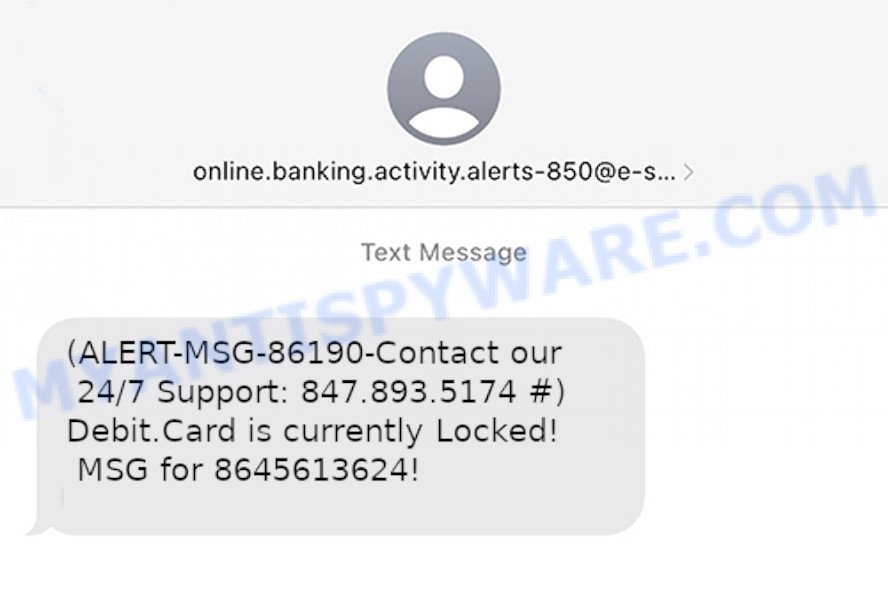
An Online Banking Alert Text Scam” Scam Text:
(ALERT-MSG-86190-Contact our 24/7 Support: 847.893.5174 #) Debit.Card is currently Locked! MSG for 8645613624!
QUICK LINKS
- Is 847.893.5174 Online Banking Alert Text a SCAM?
- How Does the Online Banking Alert Text Scam Work?
- How to Spot Scams That Mimic the Online Banking Alert?
- What to do when you receive the Online Banking Alert SCAM text?
- Scammers Phone numbers
- Real-life examples of scam-texts
- Report a Scam
How Does the Online Banking Alert Text Scam Work?
Scammers may utilize a variety of phishing techniques. Spoofing is one common technique used by scammers. Scammers disguise as bank officers. Scammers are using software that masks their real identity by displaying a fake telephone number.
Scammers send messages that mimic texts from banks. These messages falsely claim that “Debit Card have been locked” and encourage victims to call a phone number (8055198860) for help. This phone number is a service number that has been identified as a bank scam.
Typically, Scammers ask victims to divulge their personal information and card details. This information can be used for identity fraud, to conduct unauthorized financial transactions and make fraudulent purchases, to sell to criminals on the dark web, or other malicious purposes.
While less likely, scammers may ask victims to call a given number. Scammers may try to trick victims into purchasing fake support services or installing a remote control tool, which they pretend to be a program to diagnose a computer. It is important to understand that having access to a computer, scammers can steal private information and personal files, install malware (spyware, ransomware or Trojan horses).
To summarize, the Online Banking Alert Text is a SCAM. It can lead to loss of data, financial losses, theft of personal information and other serious problems.
How to Spot Scams That Mimic the Online Banking Alert
There are always a few details that can give away a scam. Make sure you know what to look out for.
- If you receive a text stating your debit card is locked, frozen or limited, don’t respond, call or click on any links. Stop and think. An unexpected text message is often the first sign of a scam. Scammers use this tactic to harvest your personal information.
- The most obvious way how to spot a fake Online Banking Alert text is finding inconsistencies in domain names, phone numbers and email addresses. If the text claims to be from the your bank, but the message is being sent from a random phone number or email address, it’s probably a scam.
- If you have the slightest suspicion a text may be a scam, do not click on the links you see.
- The text message creates a sense of urgency. Creating a false sense of urgency is a common trick of phishing scams. Be suspicious of texts that claim you must call or click a link immediately.
Examples of such scams
The Online Banking Alert Text Scam is just one of the many types of scams that exist. In some emails and text messages, scammers use threats to intimidate and bully a victim into paying, others contain links to malicious files. US9514961195221 – Your Package Cannot Be Delivered text, Geek Squad EMAIL SCAM 2022, Whatsapp Scam, Norton Subscription Has Expired are some of the scams we reported recently.
- Geek Squad Email Scam #22
- An example of Windows Defender Subscription EMAIL SCAM
- The “Don’t miss your unsettled payment. Complete your debt payment now.” email is a sextortion SCAM
- The MetaMask Wallet verification email message is a SCAM
What to do when you receive the Online Banking Alert SCAM text?
We advise everyone who receives this text to follow a few simple steps below.
- Do not believe this message.
- Do not call scammers back.
- If you are unsure if a message is coming from your bank, contact the bank directly through their official website or using an official phone number.
- If there’s a link in the scam text, do not click it, otherwise you could unwittingly install malware or ransomware on your device.
- Report the scam text to the FTC at https://www.ftc.gov/
- If you have paid a scammer, the sooner you act, the better. Use the steps (https://consumer.ftc.gov/articles/what-do-if-you-were-scammed) to try to stop a transaction, get a transaction reversed, or get a refund.
- Install an anti-phishing software.
Threat Summary
| Name | Online Banking Alert Text Scam |
| Type | Phishing, Scam, Social Engineering |
| Fake Claims | “Debit.Card is currently Locked”, “Your Debit Card have been locked” |
| Sender | online.banking.activity.alerts-xxx@e-services.com |
| Scammers phone numbers | (847) 893-5174, 1 805 519-8860, 1 866 631-1179, 1 877 560-2415 |
| Distribution methods | SMS spam campaigns |
Real-life examples of scam-texts
Below are examples of messages that people received from scammers:
- (ALERT-MSG-62437-Contact our 24/7 Support: (847)893-5174 #) FRAUD-ALERT#NO -:2201352 for your DEBIT-CARD!
- (ALERT-MSG-12501-Contact iyr 24/7 Support: 8478935174 #) FRAUD-ALERT #NO-:8235793 for your DEBIT CARD!
- (Warning-52461-Contact our 24/7 Support: (847) 893-5174 #) FRAUD-ALERT #NO-:9525842 for your DEBIT-CARD!
Report a Scam
If you have received a fake Online Banking Alert text or a message that is similar but not the same as the example above, then post it as comment on this article. Please include the telephone number the text came from. This helps us to warn users about current scams, monitor trends and disrupt scams where possible.
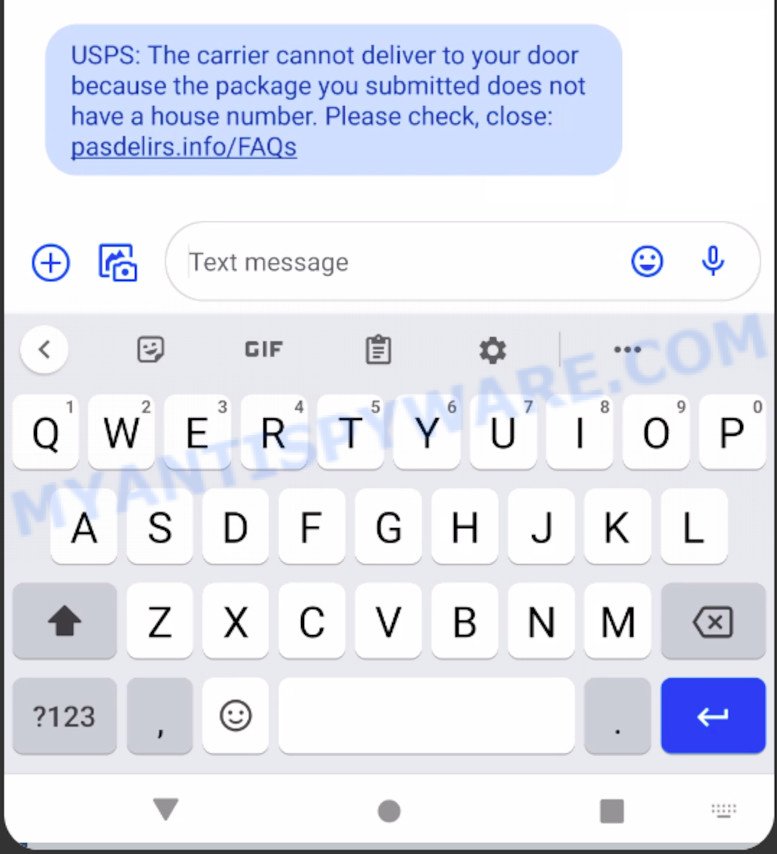
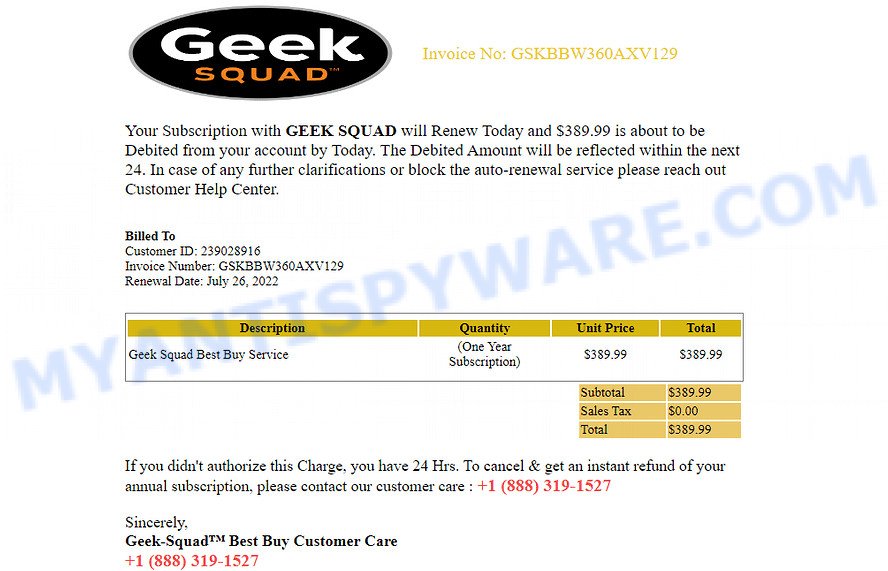
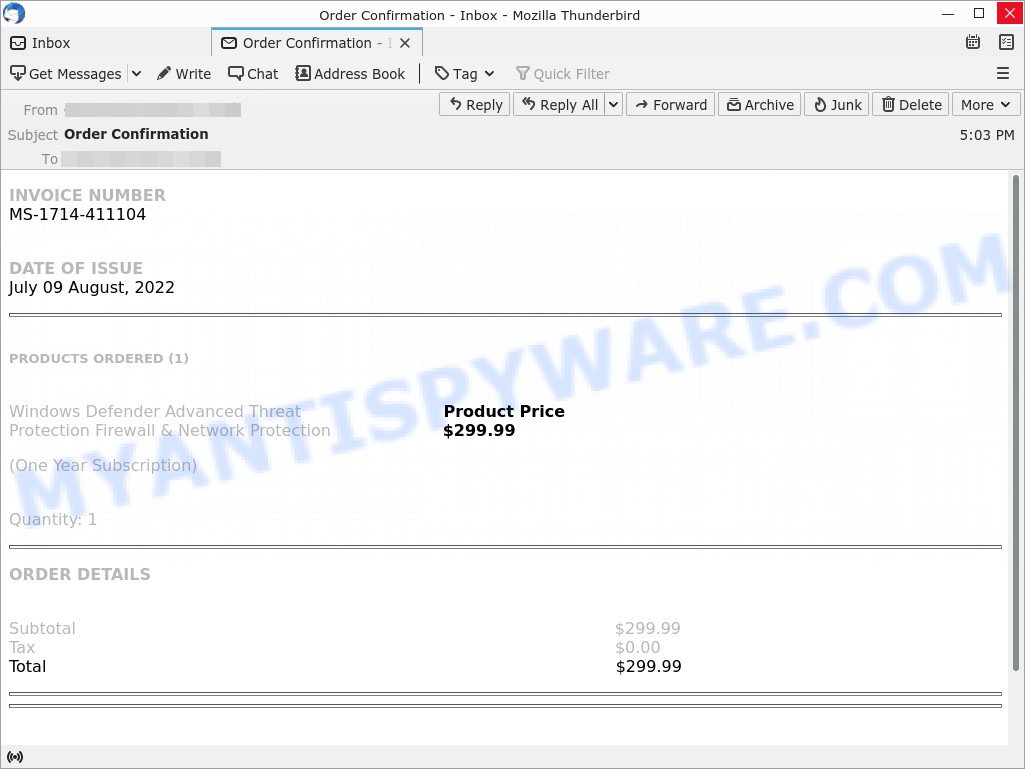
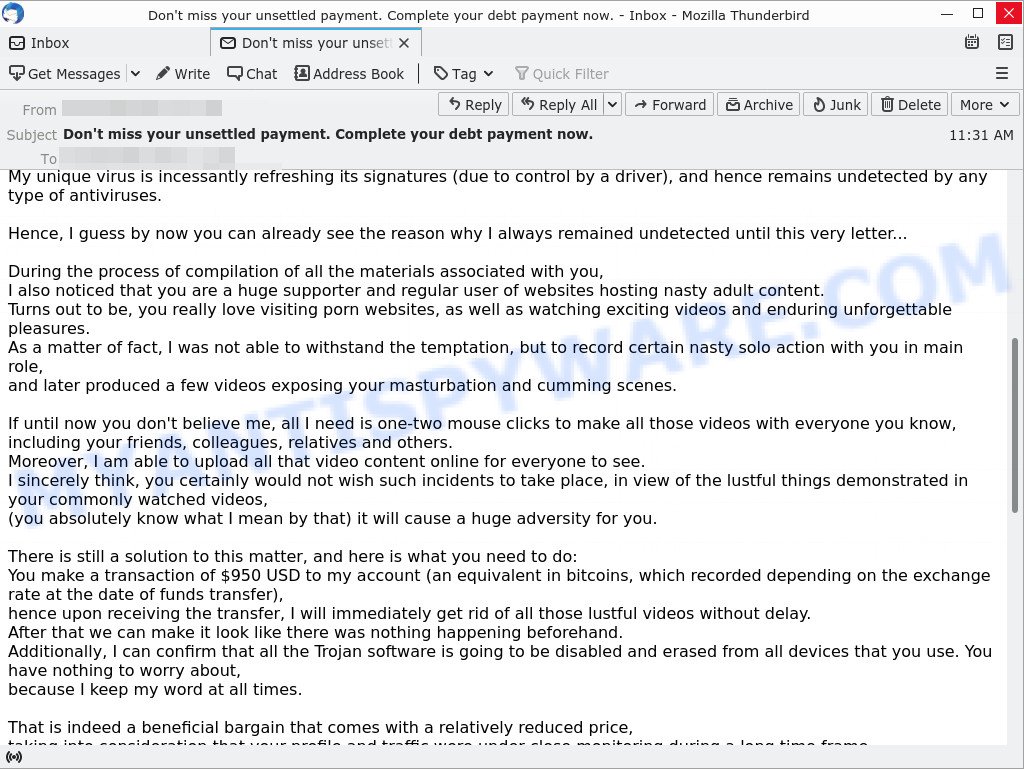
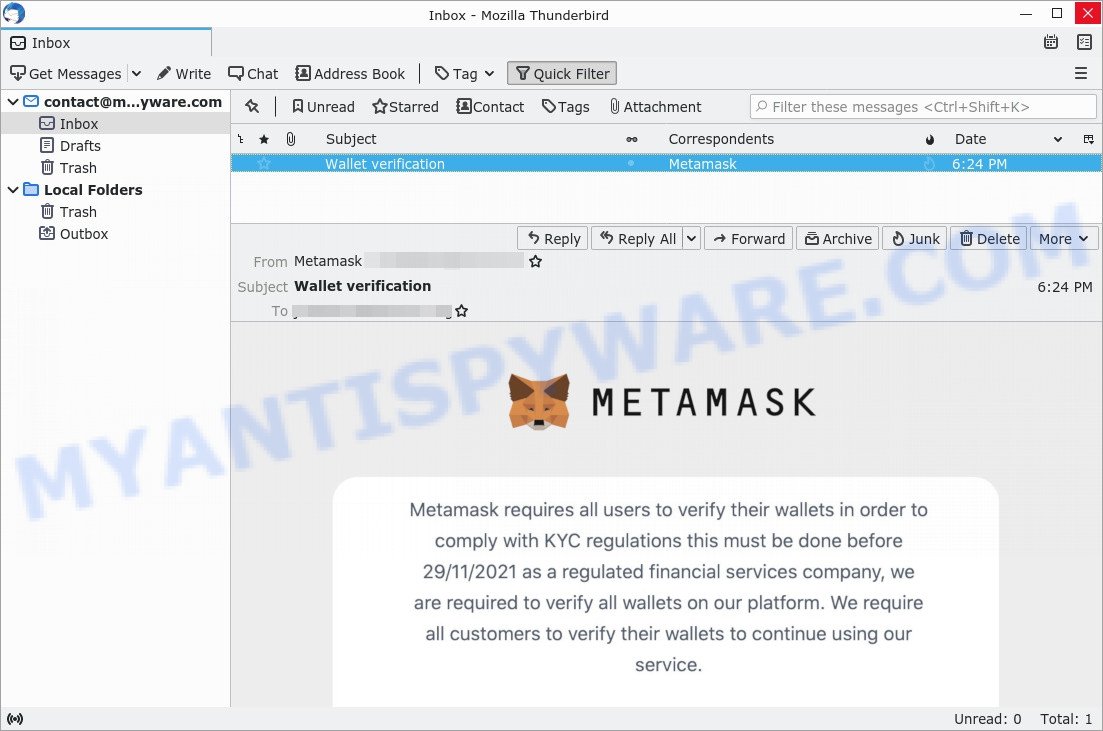


















I have received a text from +847 to acgrieve@uwclub.net sent to me.
This is definitely not my wife’s friend asking for a £200 Amazon gift card to a person I’ve never heard of.
Who can help?